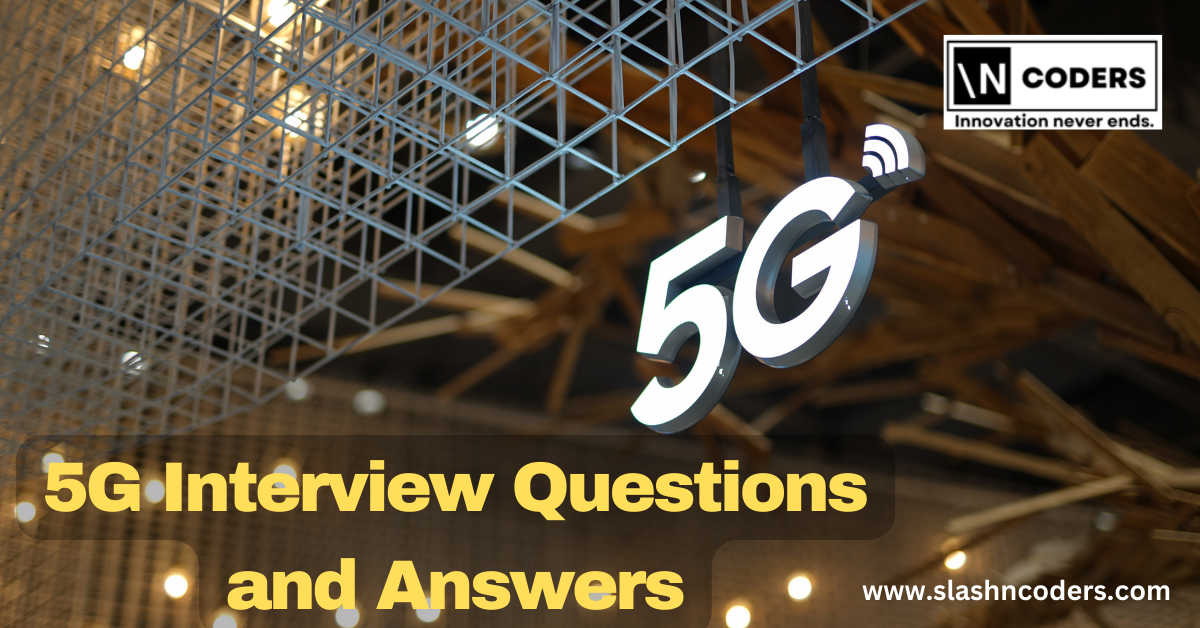5G Interview Questions: With the rollout of 5G technology, many industries are looking to hire professionals with expertise in this area. Whether you are looking for a career in telecommunications, software engineering, or networking, it is important to be prepared for 5G interview questions.
Here are five common 5G interview questions and tips on how to answer them:
- What is 5G, and how does it differ from 4G? This is a fundamental question that you should be prepared to answer in any 5G interview. In your response, make sure to highlight the key differences between 5G and 4G, such as the increased data speed, reduced latency, and ability to connect more devices simultaneously. You can also discuss some of the new use cases that 5G technology enables, such as smart cities, virtual reality, and autonomous vehicles.
- What are the different types of 5G network architecture? There are two main types of 5G network architecture: Non-Standalone (NSA) and Standalone (SA). NSA relies on the existing 4G infrastructure for control functions, while SA is a completely new network architecture that does not rely on 4G. When answering this question, make sure to explain the key differences between these two architectures and provide examples of when each might be used.
- How does 5G impact network security? As with any new technology, network security is a concern with 5G. In your response, highlight some of the potential security risks with 5G, such as the increased attack surface due to the larger number of connected devices. You can also discuss some of the measures that can be taken to enhance 5G security, such as implementing encryption, using virtual private networks (VPNs), and monitoring network traffic.
- How does 5G impact the Internet of Things (IoT)? One of the key benefits of 5G is its ability to support a large number of connected devices. In your response, explain how 5G can enable the growth of the IoT by providing faster and more reliable connectivity. You can also discuss some of the new IoT use cases that 5G enables, such as smart homes, connected vehicles, and industrial automation.
- What are the challenges of deploying 5G? 5G deployment is not without its challenges. In your response, highlight some of the potential obstacles that companies may face when deploying.
5G Interview Questions Top 25
- What is 5G technology and how is it different from 4G?
- What are the benefits of 5G technology?
- What is the maximum data rate that can be achieved with 5G?
- How is 5G expected to revolutionize the IoT (Internet of Things)?
- How does 5G technology achieve low latency and what are its implications?
- How is 5G technology expected to impact autonomous driving and transportation?
- What is the role of small cells in 5G networks?
- What is the difference between sub-6 GHz and mmWave frequencies in 5G?
- What are the challenges in deploying 5G networks and how can they be overcome?
- How is 5G technology expected to change the way we consume media and entertainment?
- What is the role of network slicing in 5G networks?
- How is 5G technology expected to impact the healthcare industry?
- What are the differences between SA (Standalone) and NSA (Non-Standalone) 5G networks?
- How does beamforming work in 5G networks?
- What is the role of edge computing in 5G networks?
- How is 5G technology expected to revolutionize the gaming industry?
- How does 5G technology impact network security?
- What are the potential use cases for 5G in the manufacturing industry?
- How is 5G technology expected to improve the efficiency of supply chain management?
- What are the different types of 5G antennas and their characteristics?
- How do 5G technology impact network virtualization and software-defined networking?
- What is the role of massive MIMO in 5G networks?
- How does 5G technology impact the energy sector?
- What are the differences between 5G NR (New Radio) and LTE (Long-Term Evolution)?
- What are the potential challenges in the global deployment of 5G technology?
Check out Python Coding Interview Questions


